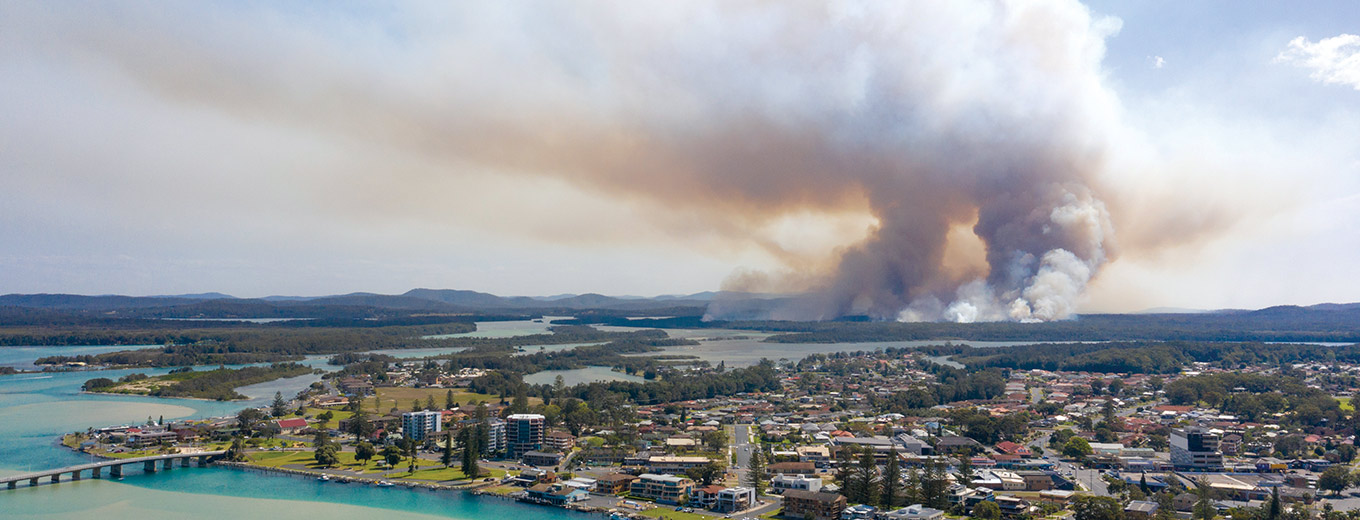Outsiders might expect the widely reported summer bush fires and now the international coronavirus outbreak to have had a devastating impact on movers in Australia. However, for the moment at least, it’s the ongoing issues common to the industry in every global region that are affecting them most. Andrew Mourant reports on the outlook of moving companies Down Under – which range from stoic to optimistic
When FIDI Focus last featured Australia, in 2016, the country was rolling with the punches. It had squared up to the global banking crisis, yet was also having to wrestle a sharp downturn in the mining industry and all that meant for the national economy.
The contraction of mining is still felt within the moving industry, although there are glimpses of revival in some parts. It’s perhaps as well that no-one becomes a mover in search of an easy life. Australia has a habit of throwing up unique challenges. Throughout a scorching summer, the country had to pick its way through and around the worst bush fires in memory.
As if that weren’t enough, many parts of the region have been paralysed by the effects of the Covid-19 crisis on international trade and the movement of people.
As FIDI Focus went to press, the extent and ramifications of coronavirus were still unfolding. The mood among Australia’s movers was mixed and there was apprehension about the impact on shipping.
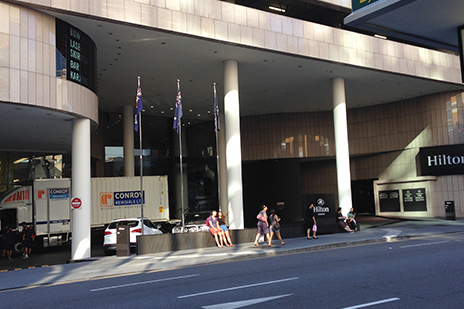
Phil Gordon, chairman of the Australian International Movers Association (AIMA) and director of Conroy Removals, is concerned about the long-term impact of delays and restrictions on worldwide clients. ‘I think there are fairly big challenges ahead,’ he says.
Bob Wray, director and co-founder of OSS World Wide Movers, agrees. ‘The main impact would be with freight forwarders – we’re seeing this at first hand. Manufacturing plants and offices have shut down and stock isn’t moving. Even containers on the water will be held up in Australia simply because we can’t get documentation to clear goods, as offices are closed.’
Elizabeth Clegg, CEO of Chess Moving Melbourne, is also worried about the slowdown. As FIDI Focus, went to press, Australian ports had a 14-day hold on goods coming in from China. ‘It’s going to start a domino effect on storage at the wharfs. What happens about demurrage (fees incurred when cargo stays at a terminal for too long) on the containers, and delivery to clients?
‘Some who’ve been able to get into the country can’t take delivery of their goods because of the delays. In other cases, their containers have arrived, but the client is still stuck overseas.’
The Australian response to almost any crisis is to tough out the worst and adapt. In a crowded market, playing the FIDI card, with its guarantees of quality standard and compliance, still counts for a lot. Cheap arrivistes may triumph in the local trade jungle, but those with a reputation for offering the best, most professional service stand the greatest chance of enduring.
Yet, with realignment, there have been casualties – the fallout from a shrunken market and the drive to find cost savings. Global relocation companies have taken control of corporate accounts, forcing down prices while expecting better service. Something has to give. ‘These business models are popping up everywhere and are definitely here to stay,’ says Nick D’Adamo, CEO of Perth-based Keys The Moving Solution (TMS).
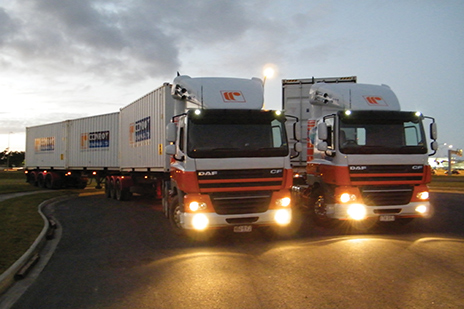
‘Some who’ve been able to get into the country can’t take delivery of their goods because of the delays. In other cases, their containers have arrived, but the client is still stuck overseas.’
The Australian response to almost any crisis is to tough out the worst and adapt. In a crowded market, playing the FIDI card, with its guarantees of quality standard and compliance, still counts for a lot. Cheap arrivistes may triumph in the local trade jungle, but those with a reputation for offering the best, most professional service stand the greatest chance of enduring.
Yet, with realignment, there have been casualties – the fallout from a shrunken market and the drive to find cost savings. Global relocation companies have taken control of corporate accounts, forcing down prices while expecting better service. Something has to give. ‘These business models are popping up everywhere and are definitely here to stay,’ says Nick D’Adamo, CEO of Perth-based Keys The Moving Solution (TMS).
Although they looked apocalyptic, bush fires derailed the economy far less than distant onlookers might imagine. Around Perth, they caused extensive damage but, claims D’Adamo, ‘did not affect our patterns of trade at all’. That said, closure of the main west to east road across the Nullarbor Plain left many motorists stranded, as did floods that shut the only other driveable east-west road, the Great Northern Highway. Crucially, given that the bulk of household goods travel by train, the west to east rail-freight link remained open throughout.
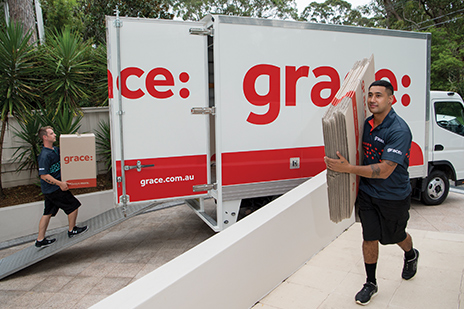
Everyone had to be alert to timings and forecasts. ‘We had occasions when deliveries were going to the coast three hours south of Sydney and our crews departed half an hour before the roads closed,’ says Nigel Saunders, general manger at Nuss Relocations. ‘But there was little disruption to us operationally.’
D’Adamo is philosophical about natural disasters. ‘Bush fires and floods are a way of life in Australia, and life goes on,’ he says. ‘There’s no sign of people looking to head for cooler climes.’ Saunders, likewise, sees no sign of an exodus from rural areas. ‘Most people live out there because they choose to and are fully aware of the risks,’ he points out. ‘We don’t see moving out as a trend.’
Stephen Bonollo, general manager of international and southern removals for Grace, believes Aussie spirit will see the industry through its changing fortunes. Grace, which has been trading for a century, has a broad base, offering services from domestic removal through to commercial, fine art logistics, corporate relocations and integrated information management. ‘We’re battlers and mates – we stand together and face challenges head on,’ says Bonollo.
One such trial is the rise in port charges following privatisation of major gateway sea ports in Melbourne, Sydney and Brisbane. ‘Many new terminal owners have dramatically increased port-access fees, sometimes by more than 150 per cent, under the guise of “infrastructure charges”,’ Bonollo says. ‘These have been borne by importers and exporters rather than shipping lines. It puts significant margin pressure on Australian international movers. Subdued export volumes are also creating increased competition.’
After the rapid decline in Western Australia (WA) when the mining boom came to an abrupt end five years ago, D’Adamo sees signs of a revival with new start-ups. ‘This will bring an increase in business.’ Keys TMS is sustained by a ‘healthy mix’ of domestic and international private moves; also, corporate and agent-controlled household goods business.
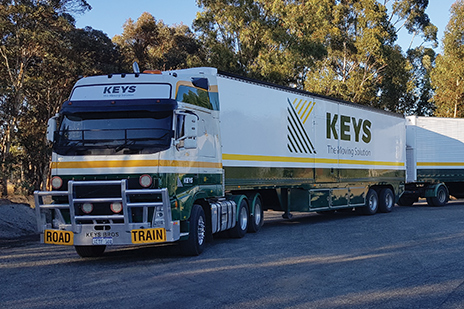
It has a ‘thriving’ commercial office-moving section and long-distance commercial heavy haulage division. Five years ago, the firm branched out into forwarding and customs broking.
Clegg, too, is convinced that things are picking up in most of Australia’s markets. ‘There are definitely signs of an increase in mining in WA (Western Australia),’ she says. ‘We’re all excited about increased business opportunity.’
Chess has branches throughout Australia. ‘That makes us unique – we can depend on each other for support. We’re able to reach most requests no matter how remote. Having the Chess “family” is a great advantage with exports, imports and interstate requests.’
D’Adamo has seen ‘remarkable change’ in the moving trade, elements of which are familiar worldwide. ‘The market has shrunk and so has the
size of the average move, because of corporates’ preference for ‘fly in, fly out’ rather than a full relocation of the entire family.
‘Millennials coming through the corporate ranks aren’t attached to household belongings. They prefer to furnish for a temporary stay with so-called “disposable” items.’ That trend, allied to the rise in popularity of flat-pack furniture and smaller homes, means smaller loads. Bonollo reports ‘a significant rise in the popularity of more economical shared container consignments’. Gordon thinks it’s time the industry began extolling the virtue of moving furniture, with the environment in mind, rather than disposing of it – ‘the greener option’.
OSS World Wide, as the name suggests, specialises in international moving that, says Wray, ‘sets us apart from most of our main FIDI competitors’. ‘There’s been quite a change in the past five or six years, which has seen imports decline, particularly from the UK/Europe. That’s because of tougher visa restrictions and economic factors. Property prices in Sydney and Melbourne have skyrocketed and, coupled with the high cost of living, has meant many potential migrants haven’t been able to move to Australia.
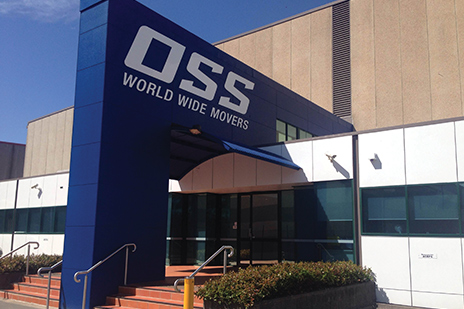
‘Meanwhile, Australian residents with UK/European roots have been able to cash in and move home with considerably increased buying power. This has seen exports of HHGPE (household goods and personal effects) increase substantially, which partly compensated for the reduction in import tonnage. The past 18 months or so have seen export levels drop a little as the housing market boom levelled out.’
With multinationals scaling back in Australia, basing their regional hub in places such as Singapore and Hong Kong, corporate relocations have ‘vastly reduced’. ‘But being a migration country, the private international moving market has always been strong, so the balance is different from other markets, where expat corporate moves dominate,’ Wray points out.
‘Costs for international removal businesses in Australia have increased sharply on the back of high compliance and labour costs compared with most of the rest of the world. Margins have reduced, putting much pressure on profitability, as evidenced by some recent failures and/or scaling back of established companies.’
D’Adamo considers cut-price competition among movers is the most intense for more than a decade. ‘Job opportunities have been few, so each one is critical,’ he says. ‘The market is showing signs of recovery, but this will take time.’
How do you tackle the cheap operators? ‘We outsell this competition and reaffirm the benefits of what an association membership brings to our customers,’ says Clegg. ‘Experience and cut-price do not go hand in hand.’
Saunders’ view is that the market ‘has been difficult across the broad spectrum’ – Nuss offers international, interstate, and local moving services. ‘With interstate, there’s definitely been a drop,’ he says. A shrunken mining industry and, within the local market, fewer house sales, have been key factors. ‘Banks became far stricter about mortgage lending and this led to a reduction in prices.’
However, Bonollo thinks the tide has turned. ‘Melbourne is enjoying its strongest property price recovery ever and Sydney the fastest rebound in decades,’ he says. ‘Low interest rates, easier access to credit lending and certainty regarding housing taxation should see property prices rise throughout the year. A strong housing market will encourage domestic movement.’
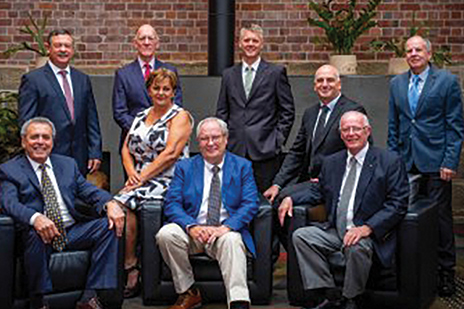
He believes Melbourne’s expansion has helped prop up the domestic industry – the city grew by a million people between 2008 and 2018. ‘It’s become the destination of choice for international movers, given its welcoming nature for immigrants and access to jobs, education and lifestyle.’ It’s also benefited from high levels of domestic immigration, partly because of physical advantages over Sydney – the lie of the land means it’s easier to add new suburbs. Moreover, Bonollo claims, Melbourne’s housing is 22 per cent cheaper than that of Sydney.
International markets ebb and flow. For Nuss, mainstays remain New Zealand, America and Europe. India, says Saunders, ‘is far more active – a lot of Indians are coming to Australia for banking, pharmaceutical, tech and engineering jobs.’ Gordon notes that the UK has dropped ‘because of Brexit uncertainty’; the US has ‘probably increased; New Zealand is cyclical, with inflows and outflows’. Generally, he says, volumes have reduced for everybody. ‘We’re all fighting for a smaller slice of the pie.’
Clegg thinks that EU-bound groupage shipments via the UK might become a thing of the past. ‘This may affect the frequency of shipments to the UK and to the rest of Europe, but, most importantly, the price to the end user,’ she says.
According to Bonollo, China and India have knocked the UK and New Zealand off the top in terms of volume immigration to Australia. ‘The demographics will continue to shift,’ he says. ‘The mix of international immigrants across Australia is likely to change further because of changes in visa regulations.’
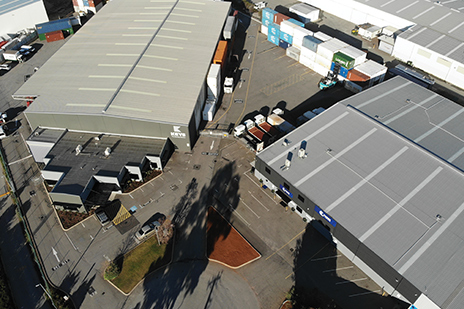
November 2019 saw the introduction of two new regional visas – the Skilled Worker Regional, which has 14,000 places allocated a year and is points-tested. It requires the holder to pass a skills assessment; to be under 45 and to settle in a regional area. The other visa, Skilled Employed Sponsored, provides 9,000 allocations annually ‘with significantly more comprehensive application requirements’.
Gordon believes the Australian moving
industry must focus more on profitable work rather than turnover: in short,
become more business-like
in a land with 16,000 movers, the vast majority of which are small local
operators. ‘The man with a van is a real problem… there’s no real barrier
to setting up,’ he says. ‘Ease of access to customers through the internet has
driven prices down. Where you end up with low prices, you get poorer service.
We need to make a profit… but the big boys are pushing the margins most.
Turnover – sales and volumes – is more important than profit.’
Finding good quality labour is, he adds, difficult in a country where ‘85 per cent of school leavers will be university graduates’. ‘They’ll have expectations that don’t go with humping furniture.’ He says the key to retaining good staff, pay aside, is ‘having them become involved in the atmosphere and culture of the company… feeling they are respected’.
Most agree about the value of FIDI affiliation. ‘Educating your sales team on selling the benefits of membership brings a positive result in most cases,’ says D’Adamo. Saunders says Nuss always draws attention to FIDI as a benchmark of high quality and compliance standards.
For Clegg, FIDI’s value lies in its web of connections. ‘It provides members with a network platform of approved agents to service our global needs,’ she says. ‘As most big-brand movers are FIDI-affiliated, it’s important to ensure we’re associated. Obviously, FIDI offers the Academy for training and FASI (its payment protection plan).’
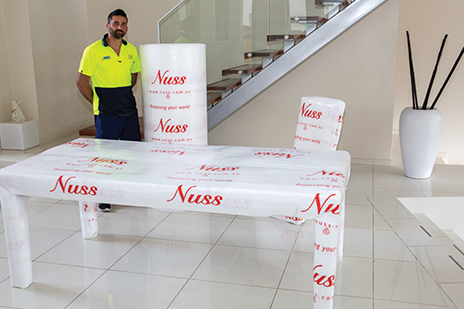
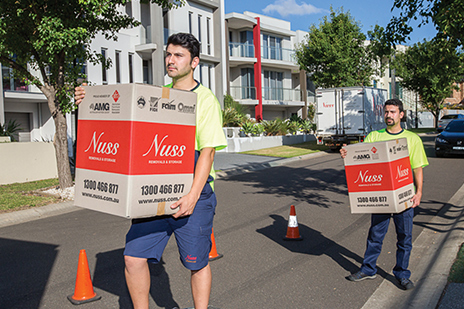
especially New Zealand,
America and Europe
How can the industry best respond to a difficult market? ‘Work harder and make sure we increase our inquiries,’ says Saunders. For Nuss, that entails making best use of technology – for example, being able to do video surveys at short notice.
‘We’re still moving around the country and people will keep moving around the world, so I’m optimistic about the future. There’ll be a market for good companies to take advantage of, but we’ll need to be smarter, day in, day out.’
D’Adamo believes there are reasons to be cheerful ‘with an expected improvement in the economy, and new projects being started, which all, ultimately, leads to improved business opportunity’.
Like Saunders, Gordon is conscious of the need to be nimble – ‘very aware’ of the need for change ‘and always at it… we have the nous to embrace technology.’
He wonders, over time, if artificial intelligence (AI) might take over office jobs and steer people into the trades and labour market. Then, moving might become a more attractive option for those currently inclined to shun it. ‘I’m passionate about the industry – it’s a game I haven’t won, but I’m still playing it.
‘My team already rise to the challenges – that keeps me optimistic.’
FIDI AFFILIATES IN AUSTRALIA
| ALLIED PICKFORDS ADELAIDE | AFFILIATED BRANCH | ADELAIDE | AUSTRALIA |
| ALLIED PICKFORDS BRISBANE | AFFILIATED BRANCH | BRISBANE | AUSTRALIA |
| ALLIED PICKFORDS CANBERRA | AFFILIATED BRANCH | CANBERRA | AUSTRALIA |
| ALLIED PICKFORDS DARWIN | AFFILIATED BRANCH | DARWIN | AUSTRALIA |
| ALLIED PICKFORDS HOBART | AFFILIATED BRANCH | HOBART | AUSTRALIA |
| ALLIED PICKFORDS MELBOURNE | AFFILIATE | MELBOURNE | AUSTRALIA |
| ALLIED PICKFORDS PERTH | AFFILIATED BRANCH | PERTH | AUSTRALIA |
| ALLIED PICKFORDS SYNDEY | AFFILIATED BRANCH | SYDNEY | AUSTRALIA |
| CHESS MOVING ADELAIDE | AFFILIATE | ADELAIDE | AUSTRALIA |
| CHESS MOVING MELBOURNE | AFFILIATE | MELBOURNE | AUSTRALIA |
| CHESS MOVING PERTH | AFFILIATE | PERTH | AUSTRALIA |
| CHESS MOVING SYDNEY | AFFILIATE | SYDNEY | AUSTRALIA |
| CONROY REMOVALS PTY LTD | AFFILIATE | BRISBANE | AUSTRALIA |
| GRACE | AFFILIATED BRANCH | ADELAIDE | AUSTRALIA |
| GRACE | AFFILIATED BRANCH | BRISBANE | AUSTRALIA |
| GRACE | AFFILIATED BRANCH | CANBERRA | AUSTRALIA |
| GRACE | AFFILIATED BRANCH | DARWIN | AUSTRALIA |
| GRACE | AFFILIATED BRANCH | HOBART | AUSTRALIA |
| GRACE | AFFILIATED BRANCH | MELBOURNE | AUSTRALIA |
| GRACE | AFFILIATED BRANCH | PERTH | AUSTRALIA |
| GRACE | AFFILIATE | SYDNEY | AUSTRALIA |
| JOHN RYAN REMOVALS | AFFILIATE | MELBOURNE | AUSTRALIA |
| KENT RELOCATION SERVICES | AFFILIATED BRANCH | ADELAIDE | AUSTRALIA |
| KENT RELOCATION SERVICES | AFFILIATED BRANCH | BRISBANE | AUSTRALIA |
| KENT RELOCATION SERVICES | AFFILIATE | MELBOURNE | AUSTRALIA |
| KENT RELOCATION SERVICES | AFFILIATED BRANCH | PERTH | AUSTRALIA |
| KENT RELOCATION SERVICES | AFFILIATED BRANCH | SYDNEY | AUSTRALIA |
| KEYS BROS INTERNATIONAL | AFFILIATE | PERTH | AUSTRALIA |
| NUSS RELOCATIONS | AFFILIATE | SYDNEY | AUSTRALIA |
| OSS WORLD WIDE MOVERS PTY LTD | AFFILIATED BRANCH | BRISBANE | AUSTRALIA |
| OSS WORLD WIDE MOVERS PTY LTD | AFFILIATED BRANCH | MELBOURNE | AUSTRALIA |
| OSS WORLD WIDE MOVERS PTY LTD | AFFILIATE | SYDNEY | AUSTRALIA |
| OVERSEAS PACKERS & SHIPPERS | AFFILIATE | BRISBANE | AUSTRALIA |
| WHYBIRDS INTERNATIONAL | AFFILIATE | BRISBANE | AUSTRALIA |
| WRIDGWAYS ADELAIDE | AFFILIATED BRANCH | ADELAIDE | AUSTRALIA |
| WRIDGWAYS BRISBANE | AFFILIATED BRANCH | BRISBANE | AUSTRALIA |
| WRIDGWAYS CANBERRA | AFFILIATED BRANCH | CANBERRA | AUSTRALIA |
| WRIDGWAYS DARWIN | AFFILIATED BRANCH | DARWIN | AUSTRALIA |
| WRIDGWAYS HOBART | AFFILIATED BRANCH | HOBART | AUSTRALIA |
| WRIDGWAYS MELBOURNE | AFFILIATED | MELBOURNE | AUSTRALIA |
| WRIDGWAYS PERTH | AFFILIATED BRANCH | PERTH | AUSTRALIA |
| WRIDGWAYS SYDNEY | AFFILIATE BRANCH | SYDNEY | AUSTRALIA |

